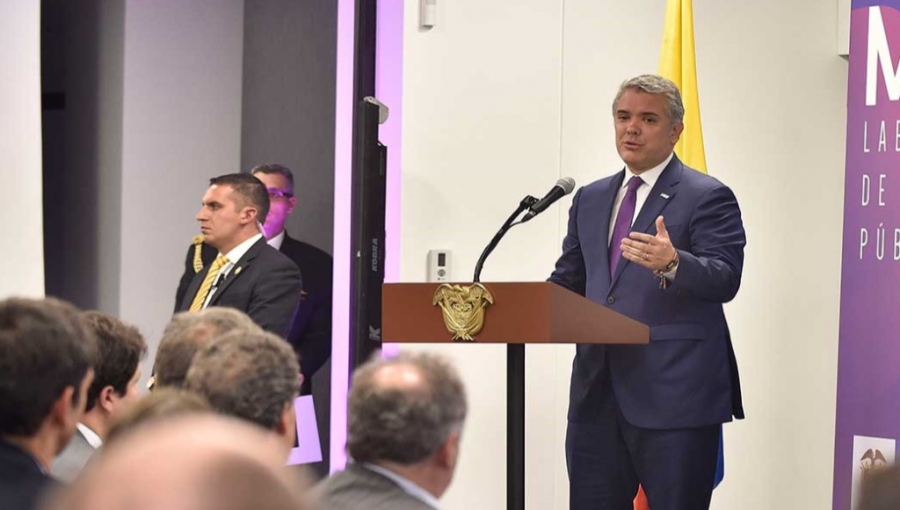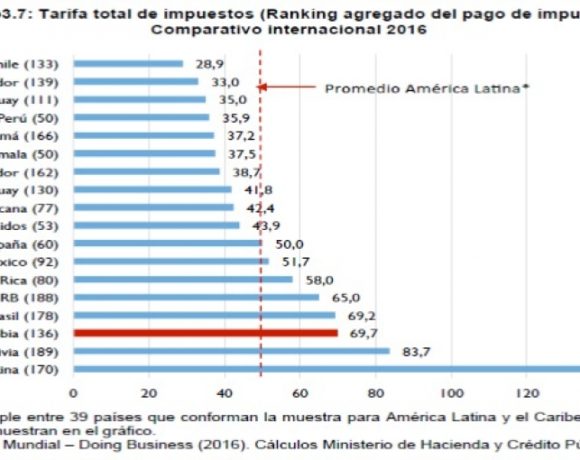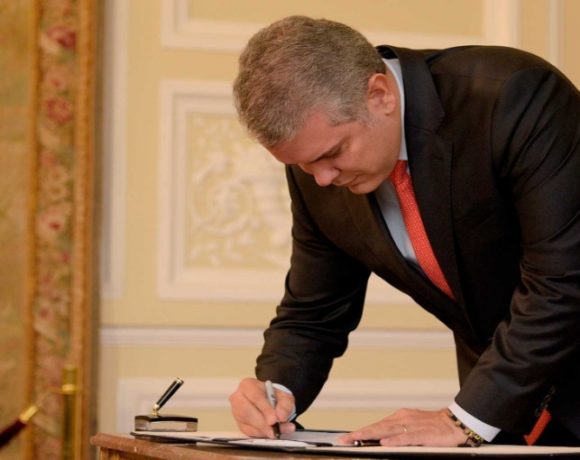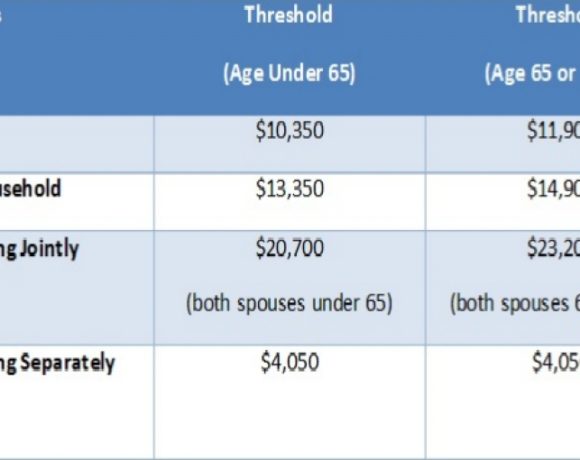Colombian Congress Approves 2019 Tax Law

Colombia President Ivan Duque and Minister of Finance Alberto Carrasquilla on December 19 both hailed final votes in the Colombian House and Senate to approve a revised tax package for 2019.
“The approved bill retains the initial spirit of protecting the most vulnerable population of the country and strengthening the collection through the taxation of the population with the highest income,” according to a Finance Ministry press statement.
The new law “aims to recover investment in the country and allow the economy to grow above 4% [annually], removing the burden on the generators of employment and encouraging investment,” the Ministry added.
Unlike the original proposal, the new law won’t extend the current 19% value-added tax (VAT) on many products to the basic “food·basket” that includes what most Colombians buy every day. However, beer and carbonated soft-drinks – previously exempt from IVA — will now be hit by that tax.
On the other hand, neither pensions nor certain service contracts will be taxed, contrary to the original tax proposal.
Meanwhile, the new law strengthens the hand of the national tax-collection agency (DIAN) in the fight against tax evasion, including possible prison sentences for evaders.
Responding to a proposal from President Duque, “tax conditions were created so that companies related to the ‘orange’ economy [high-tech, environmentally ‘green’] could develop, benefiting cultural and technological ventures that generate added value to economic growth,” the Ministry noted.
According to President Duque, the new law “promotes entrepreneurship, simplifying and facilitating the work of micro-, small, medium and large companies, which currently face a huge and inequitable tax burden that does not allow them to grow, and substantially reduces the fiscal asphyxia in sectors generating formal employment.”
Corporate income-tax rates will be gradually reduced from 33% today to 30% over the next four years.
“To increase productivity, VAT will be allowed to be deducted from the investment in capital goods starting in the taxable year 2019. In addition, companies will be able to deduct 50% of the ‘Industry and Commerce Tax’ from the taxable year 2019 and 100%l in 2022. The deduction of 50% of the ‘Lien on Financial Movements’ is maintained,” according to the Ministry.
Meanwhile, a new “SIMPLE” alternative taxation system “seeks to simplify compliance with the tax obligations of legal or natural persons with annual gross income of less than COP$2.75 billion [US$847,500]. Using a single form, they can settle their income tax obligations and ICA [Industry and Commerce Tax], reducing the costs of compliance with their tax obligations and promoting formalization [of employment],” according to the Ministry.
“In addition, SIMPLE system rates for small stores, mini-markets, micro-markets and hairdressers already are included in VAT liability. On the other hand, restaurants will liquidate the consumption tax in the same form,” according to the Ministry.
The new law also includes a 1% tax on assets of more than COP$5 billion [US$1.54 million], while real estate sales valued at more-than COP$918 million [US$282,760] will be hit by a 2% consumption tax, except for rural properties destined for agricultural production.
In addition, the personal income tax rate is increased for people with average monthly incomes greater than COP$40 million [US$12,320].
The extra tax revenues resulting from the new law “will be directed mainly to address the subsidized health system, social programs such as ‘Families in Action’ and the ‘Elderly and School Feeding Program,’” according to the Ministry.
















